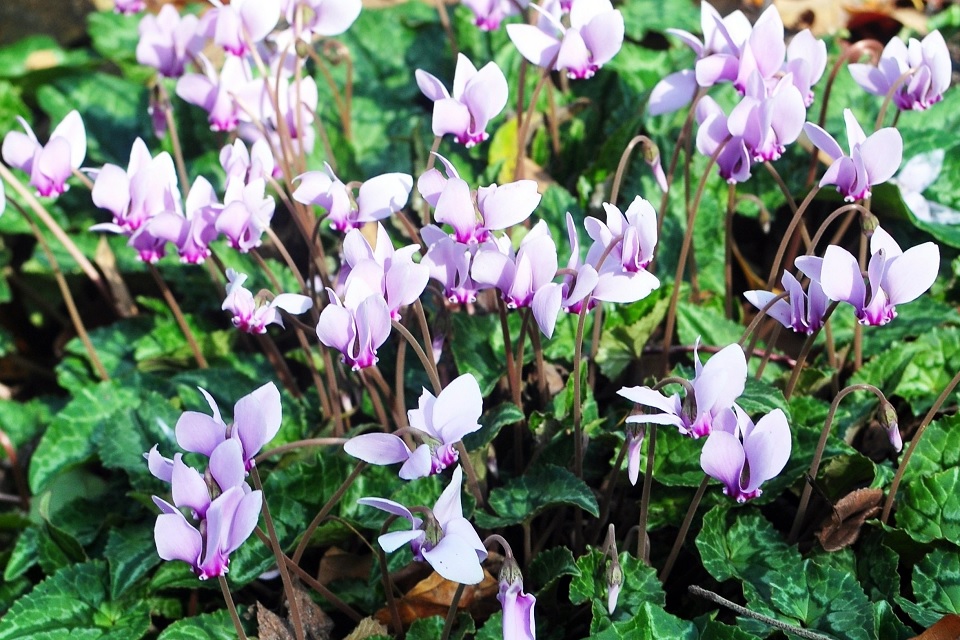
Submitted by Carol Reese, UT Extension horticulture specialist, Western Region
Though brilliant foliage is the dominant theme of autumn, a diminutive little gem of a plant,cyclamen, is also having its moment of glory. In late September to early October, small white and pink flowers arise magically from the woodland floor, while there is no other evidence of the corm below the ground. The nodding flowers have dramatically flaring reflexed petals, like dainty rockets. The beautiful leaves begin to emerge weeks later and stay for the winter, disappearing in late spring.
While there are many species of cyclamen, the one most often found in American gardens is Cyclamen hederifolium, and is often just called hardy cyclamen. It can naturalize, forming colorful colonies in a happy spot, by dropping seed that will germinate close to the parent plant. That happy spot is dry shade, which would be considered a challenging site for most plants.
Another feature that gladdens the gardener is the lovely mottled foliage that resembles English Ivy, thus the species name hederifolium, meaning that the leaves look like Hedera, which is the scientific name for English Ivy. This late-emerging foliage is evergreen, and each leaf is exquisitely beautiful, with dark green centers bordered with lighter green and silver patterns, reminiscent of fancy begonias. Each seedling will have its own distinctive and delightfully designed leaf.
Hardy cyclamen is durable and can be extremely long lived in Hardiness zone 5 -7. Its corms can eventually grow to the size of saucers, producing many blooms each fall.
Put this little joy of a plant where you can appreciate its dainty details during the fall and winter months, and where it will not be in competition with aggressive neighbors. While it is not common in garden centers, many of the more sophisticated bulb catalogs will carry it.
Carol Reese is the Western Region Ornamental Horticulture Specialist for University of Tennessee Extension. Her office is located in the West Tennessee AgResearch and Education Center in Jackson. The UT Gardens include plant collections located in Knoxville, Jackson and Crossville. Designated as the official botanical garden for the State of Tennessee, the collections are part of the University of Tennessee Institute of Agriculture. Their mission is to foster appreciation, education and stewardship of plants through garden displays, educational programs and research trials. The gardens are open during all seasons and free to the public. See utgardens.tennessee.edu for more information.
Contact:
Carol Reese, UT Extension, 731-425-4767